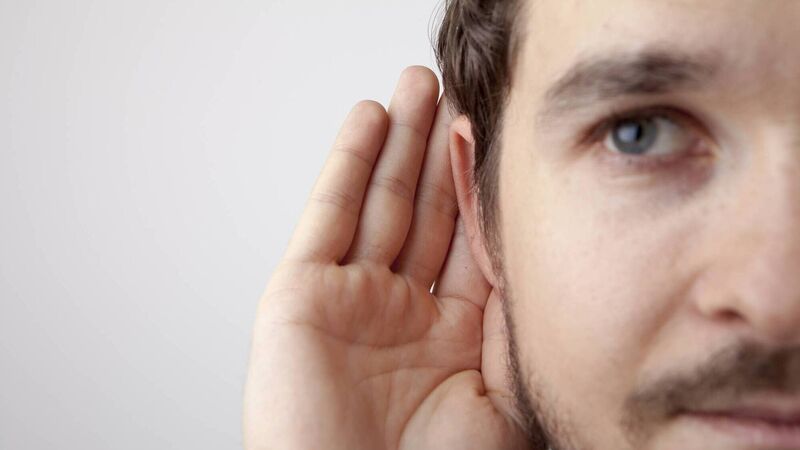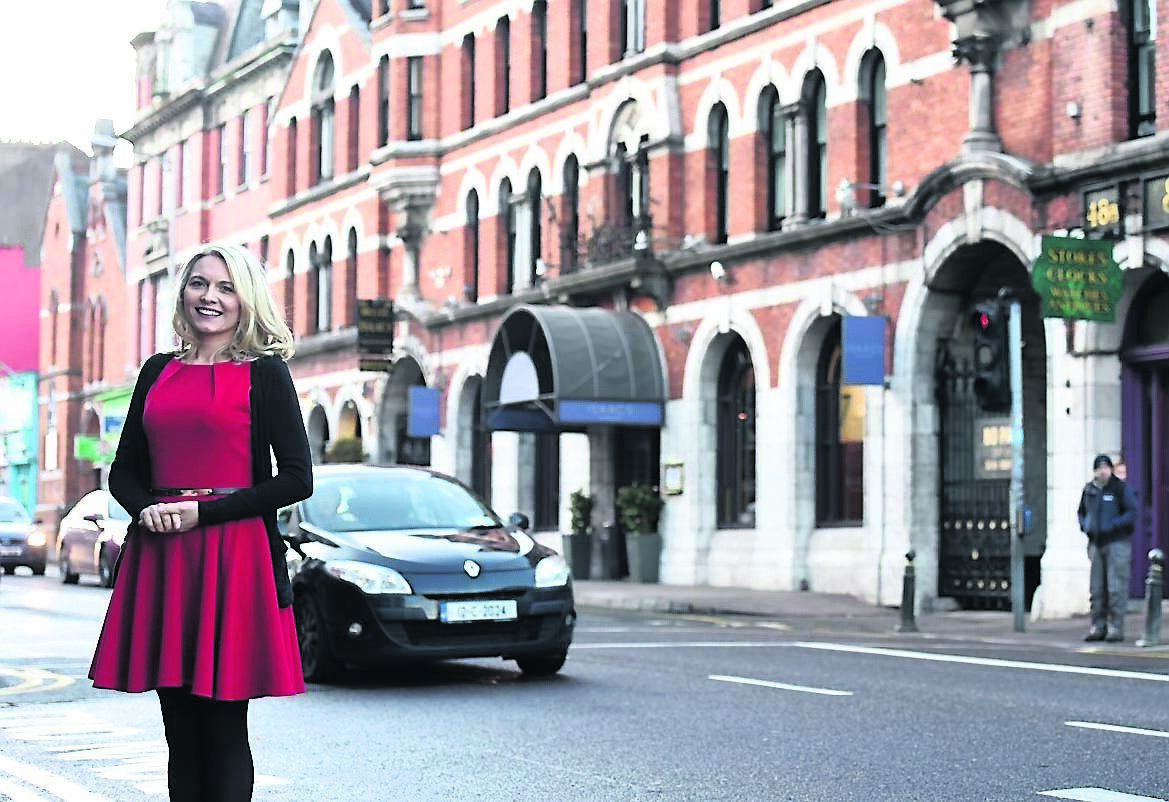Hearing issue? Now’s the time to address it

The HSE Audiological Review states that 8% of the adult population in Ireland is in need of audiological intervention, which rises to 50% in the over 70 age group.
This is a month when the soundbite of ‘New Year, new me’ can often be heard. But if you suffer from mild to severe hearing loss, perhaps it could be?
If so, The Cork Deaf Association with their offices on MacCurtain Street could just be the answer to your problem.
Serving the deaf and hearing-impaired community since 1966, the association provides support that is badly needed and they have never been stronger than they are today.
They have a tight-knit team in a very well-kitted out space, that offers privacy, care and a point in the right direction for those looking to improve their hearing, albeit from a technical or practical side.
Gerrie O’Grady, Executive Manager, explained their ethos: “Some people associate us exclusively with ISL (Irish Sign Language) but we’re very diverse. We address all forms of hearing loss, including tinnitus, as well.”
Their Tinnitus and Hearing Loss co-ordinator, Sarah, pointed out: “People can just walk in off the street or make an appointment. We’ll meet with them and go through what’s for them on the tech side.”
I was, quite frankly, blown away by what the association has on display in their technological department. If you can think of it, they have it: Telephones for the deaf, alarms for the deaf, even a catch-all watch that sends alerts when the phone rings, when the doorbell goes, and even acts as a carbon monoxide alarm.
Their audiologist does a clinic once a month and gives sound advice for those uneasy with the thought of having to spend money on hearing aids. She says: “It’s about finding out where they’re at. Some of them have never had a hearing test in their lives - some come from a private dispenser and aren’t sure if they really need hearing aids or not.

“My role is to empower people so that they can go back to the dispenser knowing if they really need them or not.”
Given the often outrageous cost of hearing aids, as I know from experience, it’s important to know whether or not they will really work for you, as the audiologist helps answer the questions ‘Do you really need to spend €5,000? Are they entitled to PRSI? Are they covered by a medical card?’
The charity also provides a social aspect of help for the deaf and hard-of-hearing community in Cork, with group activities for all walks of life and support groups.
Socialising is the main bane in the life of anyone with this affliction, so such comforts can be priceless. Building up a little community you can interact with on your own terms, who also know what you’re going through, who understand, is a wonderful thing and possibly life-changing. For those struggling, the Cork Deaf Association also provide a counselling service.
A new initiative within the Association includes ISL, which up until now relied upon the UK version. Ms O’Grady said: “You can come and do you ISL exams on a QQI model, which is very exciting.”
This is a game-changer for those wanting to learn it, who need the QQI accreditation on an academic and professional level. It is something I am eager to avail of myself.
Cork Deaf Association takes very much what Gerrie describes as a ‘holistic’ approach to dealing with hearing loss. This means they are most keen on looking at the problem and coming up with a strategy to deal with it.
Hearing aids are not an overnight fix for hearing loss and can take a while to get used to. For instance, in the first month of having mine, I had three scares crossing the road, as I wasn’t gauging sound correctly. The mere sound of a tennis shoe squeaking would send me into the stratosphere with the fright.
Cork Deaf Association aims to provide aftercare for those new to hearing aids, giving them the information they need to adapt to them. Maintaining the hearing aids, too, can be quite tricky. As Sarah Good, the Hard of Hearing Coordinator, noted: “We can help with things people might be afraid of, like changing the wax filters, getting people used to handling them without fear of breaking it.”
The HSE Audiological Review states that 8% of the adult population in Ireland is in need of audiological intervention, which rises to 50% in the over 70 age group, and many of the latter group are reticent to do anything about their hearing impairment or loss.
This is why agencies like Cork Deaf Association are a vital support for those uneasy about going to a private clinic. It is there to guide you through the process, with no agenda, they are simply there to give you information.
The world of audiology can be a Wild West arena, because it is the one health profession not covered by the regulating body CORU. This means there is currently no cap on what can be charged for products sold by audiology professionals.
One wonders how sustainable this can be, in the long term, with the World Health Organisation estimating a quarter of people will have some degree of hearing loss by 2050.
Cork Deaf Association is currently taking bookings for a 10-week ISL course, starting in September. Places are expected to fill quickly, so be quick if you want to learn. There’s lots of information on their Facebook page.
As of 2017, the Irish Sign Language Act means that users of ISL have “the right to preserve it as their native language.”.
Cork Deaf Association is just across the road from Thompson’s on MacCurtain Street. The Audiology Clinic is once a month, so booking for this is essential.







 App?
App?




